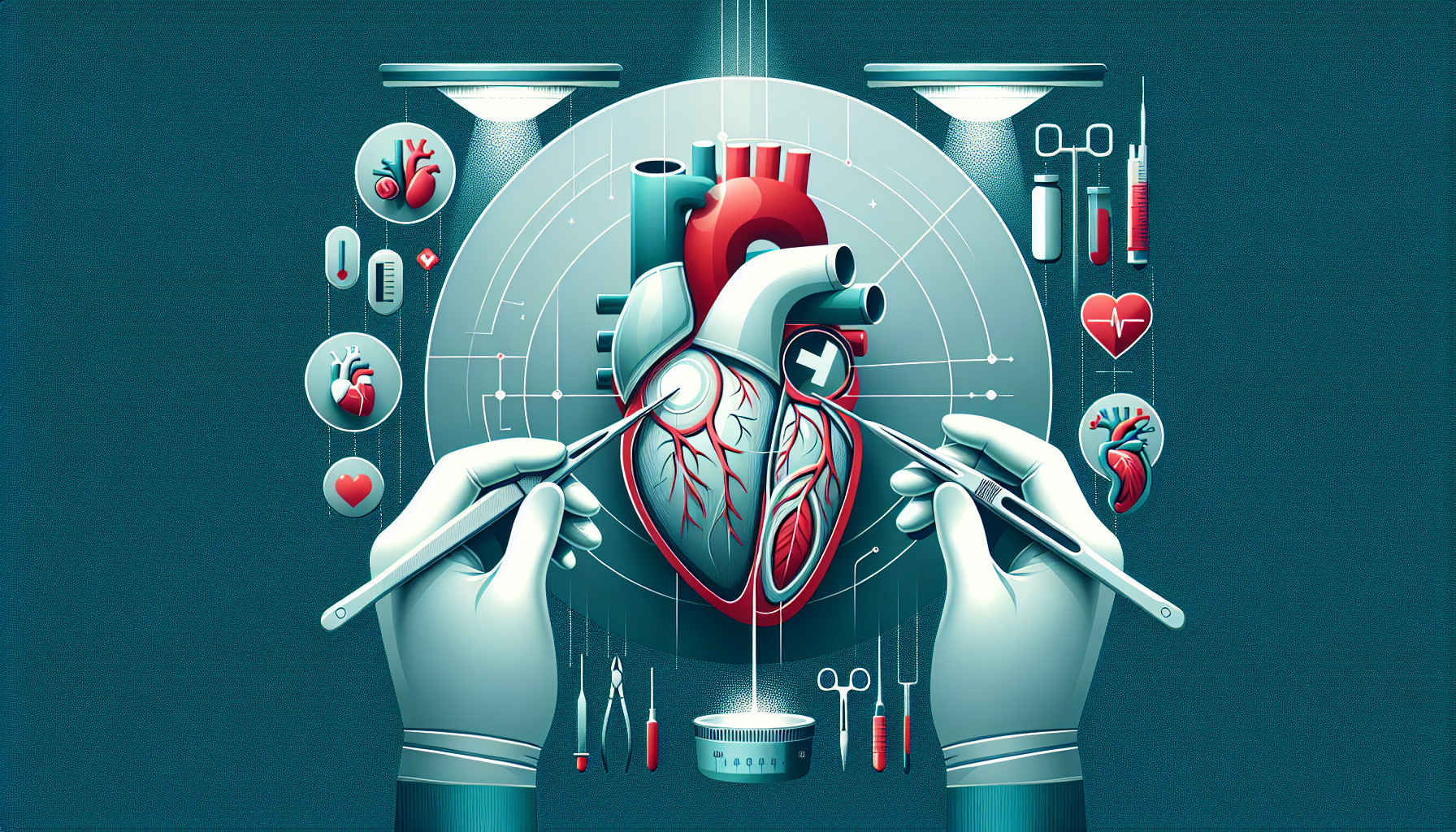Our Summary
This research paper is about the effects of replacing heart valves on the way blood flows through the heart, specifically the left ventricle. The left ventricle is an important part of the heart that pumps oxygen-rich blood into the body. Sometimes, due to disease, the valves that control the flow of blood in and out of this part of the heart, the aortic and mitral valves, need to be replaced.
However, we don’t fully understand how replacing both of these valves affects blood flow in the heart after surgery. This study uses computer simulations to model what happens when these valves are replaced with bioprosthetic (artificial) valves. The researchers used a special type of mathematical framework to simulate the movement of blood and the mechanical behavior of the heart valves.
The study found that replacing the mitral valve with an artificial valve can dramatically change the way blood flows through the heart. Specifically, it can cause the blood to swirl in the opposite direction in the left ventricle. This research shows that using computer simulations can help us better understand the complex mechanics of the heart, and how surgeries like these can affect it.
FAQs
- What is the focus of this research paper on valve replacement?
- How does replacing the mitral valve with an artificial one impact blood flow in the heart?
- How did the researchers use computer simulations in their study of heart valve replacement?
Doctor’s Tip
A doctor might advise a patient who is considering valve replacement surgery to follow a healthy lifestyle, including maintaining a balanced diet, staying physically active, and avoiding smoking, to help optimize their recovery and overall heart health. Additionally, they may recommend attending regular follow-up appointments to monitor their progress and ensure the new valve is functioning properly.
Suitable For
Patients who are typically recommended valve replacement are those with severe valve disease, such as aortic stenosis or mitral regurgitation, that is causing symptoms such as chest pain, shortness of breath, fatigue, or heart failure. These patients may have tried other treatments, such as medication or minimally invasive procedures, that have not been successful in improving their symptoms or the function of their heart valves. Additionally, patients who are at high risk for complications due to their valve disease, such as those with severe heart failure or other medical conditions, may also be recommended for valve replacement. Ultimately, the decision to undergo valve replacement surgery is made on a case-by-case basis by a team of healthcare providers, including cardiologists and cardiac surgeons, who evaluate the patient’s overall health and the severity of their valve disease.
Timeline
Before valve replacement surgery, a patient may experience symptoms such as shortness of breath, chest pain, fatigue, and heart palpitations due to a malfunctioning valve. They may undergo diagnostic tests like echocardiograms and cardiac catheterizations to determine the severity of the valve disease.
After valve replacement surgery, the patient will typically spend a few days in the hospital recovering. They may experience some pain and discomfort at the surgical site, as well as fatigue and weakness. They will be closely monitored for any signs of infection or complications.
In the weeks and months following surgery, the patient will gradually regain their strength and energy. They will participate in cardiac rehabilitation to help improve their cardiovascular fitness. It may take some time for the patient to fully adjust to their new valve and they may need to take blood thinners or other medications to prevent blood clots.
Overall, valve replacement surgery can greatly improve a patient’s quality of life and reduce their risk of complications from valve disease. With proper care and follow-up, most patients can return to their normal activities and enjoy a better quality of life after surgery.
What to Ask Your Doctor
Some questions a patient should ask their doctor about valve replacement include:
- What type of valve replacement (mechanical or bioprosthetic) is recommended for me, and why?
- What are the potential risks and complications associated with valve replacement surgery?
- How will replacing both the aortic and mitral valves affect the flow of blood in my heart?
- Will I need to take blood thinners or other medications after the surgery?
- How long is the recovery process after valve replacement surgery?
- Are there any lifestyle changes or restrictions I should be aware of post-surgery?
- How often will I need follow-up appointments and monitoring after the surgery?
- What signs or symptoms should I watch for that may indicate a complication with the replaced valves?
- Are there any alternative treatments or procedures that could be considered instead of valve replacement?
- What is the long-term outlook for someone who has had valve replacement surgery?
Reference
Authors: Xu F, Johnson EL, Wang C, Jafari A, Yang CH, Sacks MS, Krishnamurthy A, Hsu MC. Journal: Mech Res Commun. 2021 Mar;112:103604. doi: 10.1016/j.mechrescom.2020.103604. Epub 2020 Oct 16. PMID: 34305195
